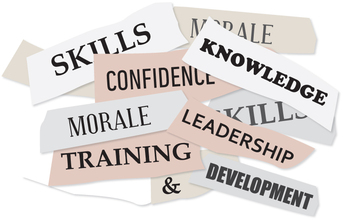
India is currently facing a huge challenge with regard to lack of skilled workers. Commenting on the same, Bharat Vishnani, Managing Director, thyssenKrupp Elevator (India) said "While highly developed nations boast an astounding skilled manpower of between 60 per cent to 90 per cent of their total workforce, India's situation suggests only 5% of workforce has formal vocational skills."
In this regard, the government is taking steps to improve skills of the future professionals and make them industry ready at the end of the course. "While the government can provide a comprehensive roadmap to push forward the broad agenda of skilling, the training initiative has to be implemented with private sector being involved in every part of the process. They need to actively participate as they know and define which skills are required," Vishnani continued.
Skill India
Is the Government of India's Skill India program helping the industry? To answer this, Ashish Budhiraja, CEO, AB Sea Container Pvt. Ltd. said, "Skill India program is a correct initiative taken by the government, and it was long awaited. With this program, we truly believe a new revolution can come to India, which can also be taken to foreign markets. Educated masses is still a problem in India which in turn conclude to unemployment. But some the skill programs, which are being offered, do not even require an educational background. And that is very good to make sure that if a person has missed on education for some reason, but can attain required skills that will help him/her to get a job."
On this backdrop, Vishnani opined, "We understand the Indian Government's skill development program is currently in the initial stage, with a country-wide rollout expected in the next few years to achieve its 2022 targets. As an industrial group with a large, highly specialised workforce, we applaud the government's efforts to improve the skill base of the population on such a large scale. However, providing the skill set required for a particular role is mainly the responsibility of corporate entities, as they best know their own requirements. Therefore, for any skilling initiative to become successful, it is crucial that the private sector becomes an active participant."
(Continued on next page)


























